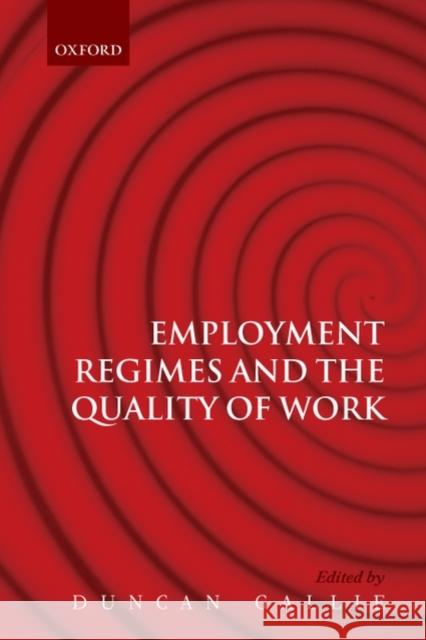Employment Regimes and the Quality of Work » książka
Employment Regimes and the Quality of Work
ISBN-13: 9780199566037 / Angielski / Miękka / 2009 / 304 str.
The book makes a major new contribution to the sociology of employment by comparing the quality of working life in European societies with very different institutional systems--France, Germany, Great Britain, Spain, and Sweden. It focuses in particular on skills and skill development, opportunities for training, the scope for initiative in work, the difficulty of combining work and family life, and the security of employment.
Drawing on a range of nationally representative surveys, it reveals striking differences in the quality of work in different European countries. It also provides for the first time rigorous comparative evidence on the experiences of different types of employee and an assessment of whether there has been a trend over time to greater polarization between a core workforce of relatively privileged employees and a peripheral workforce suffering from cumulative disadvantage. It explores the relevance of three influential theoretical perspectives, focussing respectively on the common dynamics of capitalist societies, differences in production regimes between capitalist societies, and differences in the institutional systems of employment regulation. It argues that it is the third of these--an 'employment regime' perspective--that provides the most convincing account of the factors that affect the quality of work in capitalist societies.
The findings underline the importance of differences in national policies for people's experiences of work and point to the need for a renewal at European level of initiatives for improving the quality of work.











